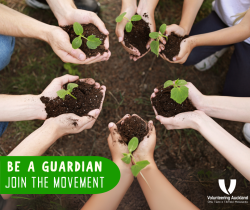Guardians of Our Future: The Role of Volunteering in Conservation

Aotearoa New Zealand is world-renowned for its unique natural environment – from ancient kauri forests and rugged coastlines to wetlands, volcanic landscapes, and diverse native wildlife found nowhere else on Earth. Yet, this special biodiversity faces ongoing threats from habitat loss, introduced predators, climate change, and urban expansion. Protecting and restoring the environment is not a task for government agencies alone. Across Aotearoa, volunteers play a crucial role in conservation – giving their time, energy, and skills to safeguard ecosystems for future generations.
In Auckland, where urban development sits alongside some of the country’s most treasured natural spaces, community-driven conservation is thriving. From beach clean-ups to predator control, volunteers are on the frontline of environmental protection. Their contribution is more than just practical; it reflects a growing recognition that everyone has a responsibility as kaitiaki – guardians – of the land and waters that sustain us.
Why Conservation Matters
The call to protect New Zealand’s environment is both urgent and deeply personal. Our natural heritage underpins not just our national identity but also our economy and wellbeing. Tourism, agriculture, and fisheries rely on healthy ecosystems, while access to green spaces is proven to boost mental and physical health.
Yet, our biodiversity is under pressure. More than 4,000 native species are threatened or at risk of extinction. Forests are vulnerable to diseases such as kauri dieback. Coastal environments suffer from pollution and plastic waste. Invasive predators such as stoats, rats, and possums decimate native bird populations.
Without intervention, many taonga species could disappear within our lifetimes. Conservation volunteering offers an avenue for ordinary people to make an extraordinary difference – turning concern into action.
The Power of Volunteers in Conservation
Volunteers provide essential people-power that organisations simply couldn’t afford otherwise. They plant trees to restore native bush, monitor wildlife to track population trends, and run traplines to reduce predators. Many also act as advocates, raising awareness about local issues, supporting education programmes, or fundraising for conservation projects.
Beyond the direct impact, volunteering fosters stronger community connections and encourages a culture of stewardship. It helps people feel more connected to place and more invested in protecting the environment. For young people, volunteering in conservation often sparks a lifelong interest in science, ecology, or sustainable living.
Conservation Volunteering in Tāmaki Makaurau Auckland
Auckland, New Zealand’s largest city, is blessed with an incredible range of natural environments – from the Waitākere Ranges and Hunua forests to Hauraki Gulf islands and expansive regional parks. Despite urban pressures, community groups are stepping up to restore and protect these precious spaces.
Here are some examples of the types of opportunities available for conservation volunteers in the Auckland region:
1. Predator Control and Pest Management
Groups like Forest & Bird, Pest Free Kaipātiki, and Pest Free Auckland 2050 rely on volunteers to check and maintain traplines, monitor bait stations, and report predator sightings. This mahi is vital to reduce populations of rats, stoats, and possums, allowing native birds and lizards to thrive.
2. Native Tree Planting and Habitat Restoration
Large-scale planting events are held throughout winter, where volunteers plant thousands of native seedlings to restore wetlands, forests, and coastal dunes. Organisations such as Trees for Survival and EcoMatters coordinate planting days, while Auckland Council’s parks programme often provides opportunities for individuals and families to get involved.
3. Wildlife Monitoring and Species Protection
On islands in the Hauraki Gulf, such as Tiritiri Matangi and Motutapu, volunteers assist with bird counts, lizard monitoring, and habitat maintenance. These citizen science projects collect critical data to inform conservation decisions and celebrate success – like the return of bellbirds, tīeke (saddlebacks), and kākāriki (parakeets).
4. Beach and Waterway Clean-ups
Urban environments contribute significant waste to coastlines and rivers. Groups like Sea Cleaners and Love Your Coast organise regular clean-ups across Auckland, removing tonnes of rubbish each year. Volunteers pick up plastics, tyres, and other debris, preventing harm to marine life and improving the health of waterways.
5. Advocacy, Education, and Community Outreach
Not all conservation work involves gumboots and spades. Volunteers also run workshops, lead guided walks, support school programmes, and help with communications or fundraising. These roles are equally important, ensuring that conservation has visibility and long-term community backing.
Building a Culture of Care
The conservation challenges we face are complex and ongoing. Yet, volunteering demonstrates the strength of collective action. When communities come together, they can reverse damage and create lasting change. Auckland’s predator-free initiatives, for example, show how neighbourhood-led projects can complement national strategies. Similarly, the restoration of Tiritiri Matangi Island – largely achieved through decades of volunteer planting – stands as a powerful example of what sustained community action can achieve.
Volunteering in conservation also deepens our relationship with the environment. Planting a tree is not just about adding greenery; it is about restoring mauri – the life force – to the land. Setting a trap is not just about catching a rat; it is about giving native birds a chance to sing freely again. Through these acts, volunteers embody the principle of kaitiakitanga, ensuring the wellbeing of nature for future generations.
Why We Must Continue to Support This Work
For conservation volunteering to thrive, it requires ongoing support – from government, councils, and the wider community. Funding is essential to provide training, tools, and resources. Recognition and encouragement help sustain volunteers’ energy and motivation. Schools and businesses can also play a role, embedding volunteering into education and workplace culture.
Ultimately, protecting New Zealand’s environment is not optional – it is essential. The choices we make now will determine whether future generations inherit flourishing forests, clean coastlines, and abundant birdlife, or a diminished landscape. Volunteering provides a practical and hopeful way forward, proving that collective effort can restore ecosystems and heal the land.
Final Thought
In Auckland and across Aotearoa, conservation volunteers are guardians of our future. Their hands plant the trees, their footsteps monitor the tracks, and their voices advocate for action. By joining them – whether for a one-off beach clean-up or a long-term restoration project – each of us can help ensure that New Zealand’s natural treasures remain vibrant and resilient.
After all, the environment sustains us all. By supporting and protecting it, we are, in turn, protecting ourselves.

